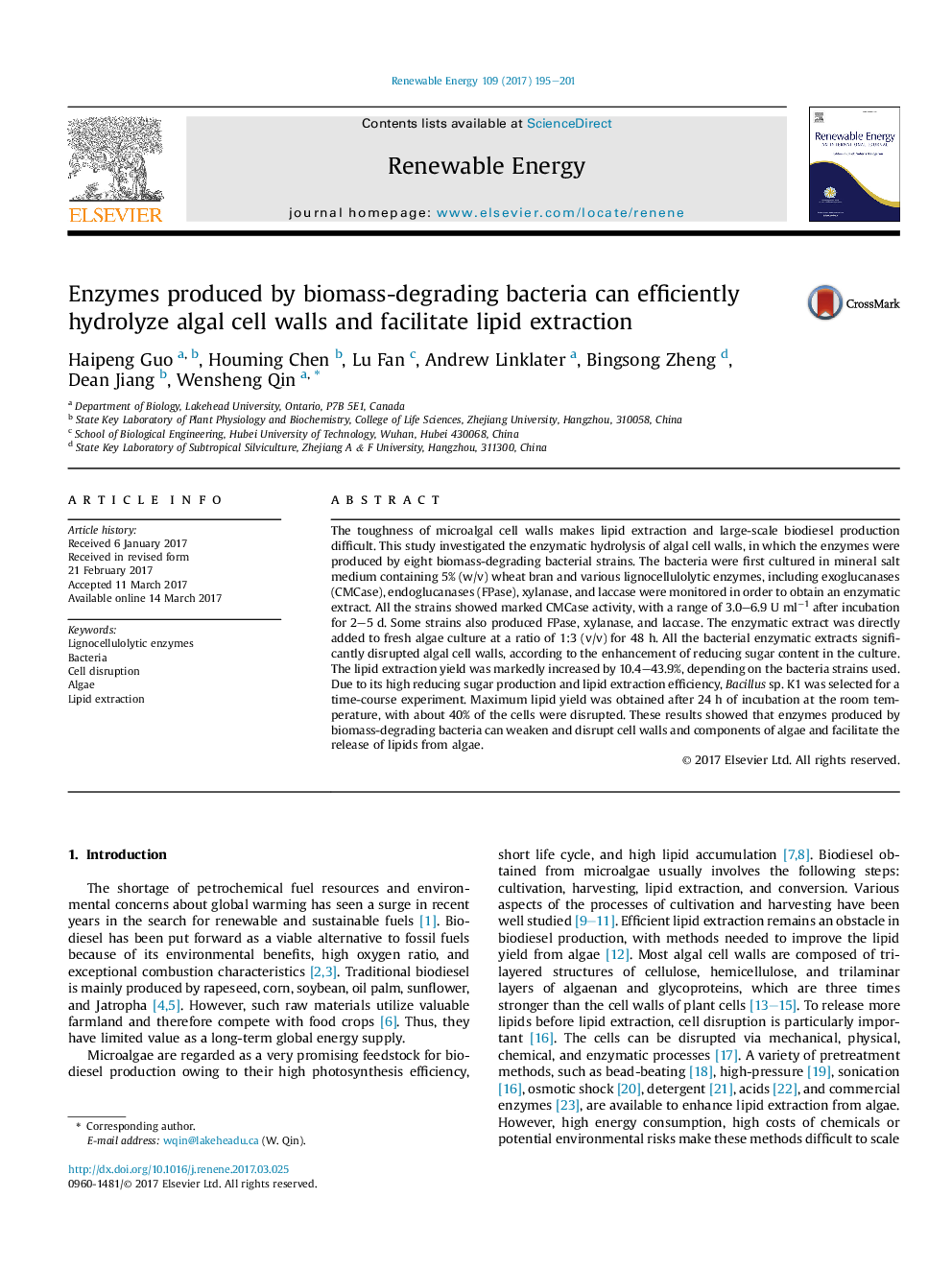| Article ID | Journal | Published Year | Pages | File Type |
|---|---|---|---|---|
| 4926645 | Renewable Energy | 2017 | 7 Pages |
Abstract
The toughness of microalgal cell walls makes lipid extraction and large-scale biodiesel production difficult. This study investigated the enzymatic hydrolysis of algal cell walls, in which the enzymes were produced by eight biomass-degrading bacterial strains. The bacteria were first cultured in mineral salt medium containing 5% (w/v) wheat bran and various lignocellulolytic enzymes, including carboxymethyl cellulase (CMCase), filter paper activity (FPase), xylanase, and laccase were monitored in order to obtain an enzymatic extract. All the strains showed marked CMCase activity, with a range of 3.0-6.9 UÂ mlâ1 after incubation for 2-5Â d. Some strains also produced FPase, xylanase, and laccase. The enzymatic extract was directly added to fresh algae culture at a ratio of 1:3 (v/v) for 48Â h. All the bacterial enzymatic extracts significantly disrupted algal cell walls, according to the enhancement of reducing sugar content in the culture. The lipid extraction yield was markedly increased by 10.4-43.9%, depending on the bacteria strains used. Due to its high reducing sugar production and lipid extraction efficiency, Bacillus sp. K1 was selected for a time-course experiment. Maximum lipid yield was obtained after 24Â h of incubation at the room temperature, with about 40% of the cells were disrupted. These results showed that enzymes produced by biomass-degrading bacteria can weaken and disrupt cell walls and components of algae and facilitate the release of lipids from algae.
Related Topics
Physical Sciences and Engineering
Energy
Renewable Energy, Sustainability and the Environment
Authors
Haipeng Guo, Houming Chen, Lu Fan, Andrew Linklater, Bingsong Zheng, Dean Jiang, Wensheng Qin,
